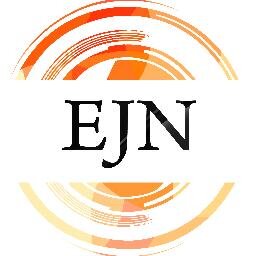The Center for Media Research- Nepal organized a discussion program “Restriction and Shrinking of Civic Space: Drafting of CSO Policies in Nepal,” on June 25, 2021 focusing on the status of CSO policies at the federal level.
The participants pointed out that the law-making process of CSO policy was imbued with the intention of curbing the civic space and stressed that continuous vigilance was unabated.
The role of stakeholders has resulted to drop the proposed draft bill by the Ministry of Home Affairs and new process of drafting the bill is initiated. The Government’s Plan and Policies has envisaged to draft new bill to address the concerns of social organization through Integrated Social Development Act. It was emphasized that further consultation is required in drafting of new law with the stakeholders.
Presenting a discussion paper, Lekhanath Pandey, lecturer at the Central Department of Journalism and Mass Communication at the Tribhuvan University, argued that the intention behind making of laws restrictive was result of interpretation of constitutional provision to manage the CSOs based on the national needs and priority to make such organizations accountable and transparent.
Further the charter has adopted “single door policy” to establish, endorse, engage, and regulate NGOs and INGOs management, said Pandey.
Speaking at the program, Executive Chief of Freedom Forum Taranath Dahal said that the constitutional provision of freedom of association has been viewed through the traditional lens of linking it with only CSOs in Nepal.
Dahal emphasized the need to take broader approach in viewing the constitutional provision of freedom of association and argued that the constitutional guarantee as fundamental rights where in freedom of association cannot be encroached by other provisions of the charters. Such provisions do not hold ‘constitutional gravity,’ and must not be given much importance.
The Constitution of Nepal 2015 in its Article 51 holds the provision of States policy: Involving NGOs and INGOs only in the areas of national needs and priority, by adopting a one-door policy for the establishment, endorsement, engagement, regulation and management of such organizations, and by making the investment and role of such organizations accountable and transparent.
President of NGO Federation Jitram Lama explained the role of stakeholders that resulted to dropping of the bill drafted by the Ministry of Home Affairs. He said that they have consulted with the Social Welfare Council and agreed in principle to go ahead in drafting of new law to regulate CSOs in Nepal.
He emphasized the making of new laws should envision to support social entrepreneurship role of CSOs in Nepal.
“The organizations in Nepal could engage creating employment and profit-making activities, but the profit earned should be spent for social work and community development,” said Lama. The present legal provisions bar the CSOs to engage in profit making activities.
Lama outlined the necessity for the CSO to search for alternatives to the international support and search for opportunities within the country for resources.
Speaking at the program, Member- Secretary of the Social Welfare Council Pushkar Khati said that proposed bill made by Ministry has not been withdrawn but government has adopted in its policies and plans to develop Integrated Social Development Act.
He informed that Ministry of Women, Children and Senior Citizen has asked for principle agreement to draft a new bill to the Ministry of Law.
In the discussion participants also pointed out the practical problems with respect to CSOs registration and classification.
Senior Journalist Babita Basnet said that the proposed draft law has provisions on classification of CSOs. To classify it based on the working fields is not possible as the working area are interconnected said Basnet. Such classification cannot be practical, as CSOs work in different cross cutting issues.
Advocate Punyashila Dawadi of Legal Aid and Consultancy Center (LACC) said that it was necessary take a practical approach while making the laws. She pointed out monitoring all the projects from the Social Welfare Council are unnecessary but monitoring and evaluation of organization’s holistic nature could be helpful to understand the strength and weakness of organization.
Devraj Humagain, the researcher at Martin Chautrai said that practical approach is lacking behind understanding of the government agency as it puts all the organization in one basket.
Humagain pointed out that defining research organization with respect other organization that supports in infrastructure development needs to be dealt separately. He said that the government is in discussion to form a National Research Council, further creating doubt whether research organizations should get registered in the Council or other government agency.
Thirty-seven participants, representatives of various stakeholders, participated in the virtual discussion program.








